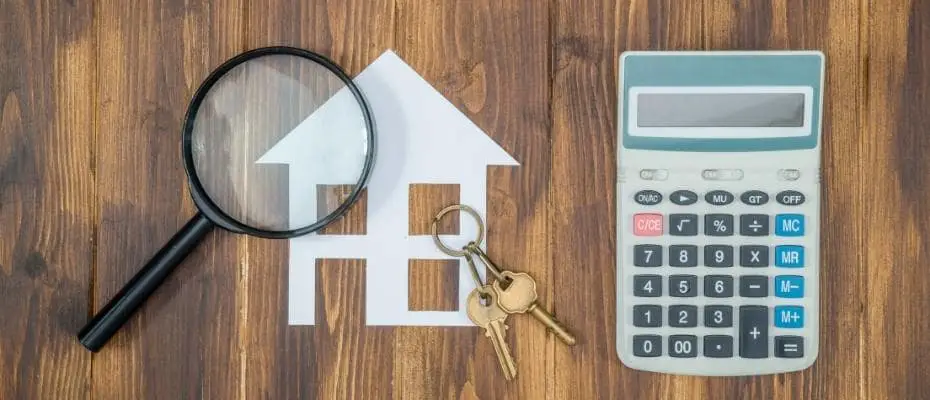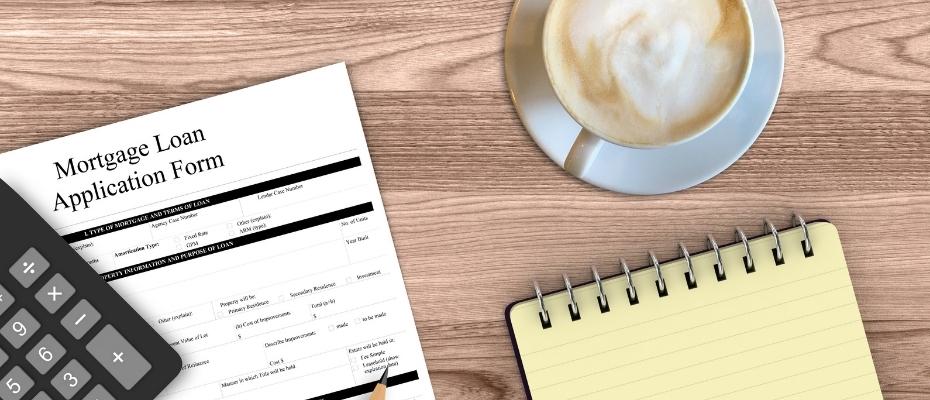Your dreams of buying your perfect home can often be cut back by the mortgage you can afford. If you are struggling to borrow as much money as you would like, read on for tips on how you can make yourself more attractive to lenders and increase your chances of getting a bigger mortgage.
Mortgage affordability: How much can I borrow?
When a lender is assessing how much cash to lend you, they look at a number of things including your income, credit rating, affordability and existing debts.
As a generic rule of thumb, most lenders would lend you around 4.5x your gross annual income. For example, if your income is £35,000 a year, you would likely be able to borrow 35,000 x 4.5 = £157,500.
However, this is general guidance and in reality, every application is assessed individually. In addition to your income, the lender considers your age, the property, your deposit and your finances. This brings us to the second bit of mortgage affordability: mortgage repayments.
When you apply for a mortgage, a lender wants to check your finances and see that you’ll have enough money every month to afford the repayments. Your lender will ask you about your levels of unsecured debt and regular costs (such as childcare, utility bills and car finance). Your lender will also want to see the last three months’ worth of bank statements as proof. Therefore, if you can, it’s a good idea to cut down on any unnecessary spending and show that you have enough disposable income a few months before applying for a mortgage.
Finally, lenders will also consider whether you can afford your repayments if interest rates rise. The exact criteria vary but the buffer rate is typically around the lender’s current rate plus 3%.
To find out more about mortgage affordability checks and estimated monthly payments for your property purchase, you can use a mortgage calculator.
How can I get a bigger mortgage?
In order to get a bigger mortgage, you need to minimise anything that might be a red flag for a lender and ensure your finances are in the best possible shape. Follow the tips in this guide to get your finances in order.
Maximise your borrowing power to afford a bigger mortgage
Maximising your borrowing power can help you to afford a bigger mortgage. Here are a few ways you can increase your chances of getting a bigger mortgage.

1. Include all income
Lenders might be able to consider other income such as bonuses, commission, overtime, side hustles, child benefits, rental or property income and investment dividends. However, it’s worth noting that if you’re self-employed or have other side incomes, lenders will usually want to see evidence of your accounts and income for at least the past two years.
2. Consider joint application
More and more first-time buyers are buying with spouses, partners or family members. In fact, a survey has revealed that 38% of people would even consider buying a home with friends. The joint income increases the borrowing significantly and allows you to have a bigger deposit if both parties have been saving. However, if you want to buy with someone who is not your family member or legal partner (i.e. marriage or civil partnership), it makes sense to sign a legally binding document that each party must stick to no matter what happens in the future.
3. Shop around
As discussed previously, most lenders will lend 4.5x your annual income but there are some that do 4.75x or even 5x. It’s always worth comparing various rates online rather than automatically opting for a bank you already use. If maximising your borrowing is a priority for you, a mortgage broker can also help you to find the lender that will borrow you the most money.
4. Increase mortgage term
Standard mortgage terms are 25 years, but you can lower your monthly repayments by opting for a longer term. Most lenders will consider up to 35 years. This can boost your borrowing power as it makes payments more affordable. However, when taking a longer mortgage term, it’s always important to consider that your mortgage will take longer to pay off and you will pay more interest over the extended period.

5. Improve your credit rating
The better your credit rating, the more open lenders will be to give you a mortgage. There are several ways to improve your credit rating. These include being on the electoral roll, paying utility bills on time and smart use of credit cards. A higher credit score helps you obtain not only a lower interest rate but also a slightly larger loan, in many cases.
6. Improve your employment status
A transfer from a fixed-term or temporary contract to a permanent contract or a pay rise can significantly improve your mortgage eligibility. Many private-sector employers respond to pay increase requests from employees rather than proactively reviewing salaries. If you’ve been with your employer for a while and can provide evidence of your effectiveness, this is a reasonable request where you have nothing to lose.
7. Get a guarantor
If possible in your circumstances, asking a family member to guarantee your mortgage can boost your borrowing power. However, it’s worth noting the lender will check their financial situation too. They could also be held liable for the debt if you default on repayments.
Increase your deposit
A deposit is the second element of the funds used to purchase a property – while it’s usually a smaller amount, it’s just as important. Here are a couple of tips that can help you to save a bigger deposit and therefore afford a bigger mortgage.

8. Spend less
As discussed previously, in addition to your income, lenders assess your affordability and analyse how you spend your money. They look at your regular payments, such as childcare costs, bills, and living expenses as well as lifestyle choices such as holidays. So if you want to borrow more, reduce your outgoings wherever possible. Further to improving your mortgage affordability, spending less will help you to save more for a deposit. From gym membership to streaming services and mobile contracts, all of these monthly direct debits can be assessed to ensure you’re not overpaying – or even worse, paying without even using them.
9. Save with a Lifetime ISA (LISA)
Lifetime ISA aka LISA lets you save up to £4,000 a year towards your first home (up to £450,000) or retirement. The government will also add a 25% bonus to your savings, up to a maximum of £1,000 per year. Please note that you shouldn’t access your LISA for any reason except for buying a home unless it’s an emergency. You’ll pay a 25% penalty on ordinary withdrawals before the age of 60.
Reduce debt
Debt not only has an impact on how much you can save but also on how much you can borrow. Lenders can reduce the amount they will borrow based on your outstanding debt. Therefore, clearing off debt can go a long way. Here are some examples of debt that lenders consider:
- Secured debt: Loans that have an asset attached to them, such as car loans.
- Unsecured debt: Loans that aren’t secured against any specific items, such as personal loans for a wedding or a holiday.
- Revolving debt: Credit that does not have a fixed number of payments, credit cards are the most common example of revolving debt.
10. Pay off debt
When assessing your mortgage application lenders look at how much money you owe already. In general, the more debt you have, the less you’ll be able to borrow. If you have savings, use them to pay off existing debts. Not only will this be cost-effective (because interest rates charged on borrowing are generally more than you earn from a savings account) but it will make you more attractive to lenders. Just remember to keep some savings aside for an emergency.
11. Close unused accounts
Mortgage lenders also look at how much access to credit you already have. If you have lots of credit cards or a big overdraft facility, they’ll be less open to offering you a mortgage. If you’ve got a credit facility you don’t need, close the account or ask for the limit to be reduced.


I didn’t know you could increase your mortgage term! Thanks for sharing. I need to use my equity and purchase a second home =)
~Michelle
https://michellescrazybusylife.net
Thanks Michelle, I’m happy to hear you learned something new from this! Your plan sounds great, especially if it’s to buy the second place as an investment property!
LISAs have problems for some buyers in london, where the max property value of £450,000 may not be large enough. So they have to take their money out and then they lose 25%… which is more than the value of the government bonuses added.